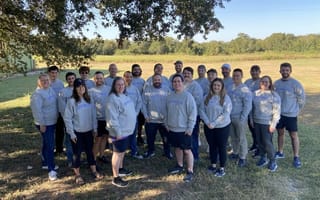
On Wednesday, BrainCheck, a Houston- and Austin-based company that offers cognitive screening software, announced that it has raised $10 million in Series B funding. This brings the company’s total funding to $20 million.
Approximately 10 percent of people over the age of 65 have dementia, and that number is expected to triple in 30 years, according to the World Health Organization. While the problem is widespread among seniors, cognitive impairment can start to show itself even earlier than 65.
According to the CDC, one in nine adults aged 45 and older report subjective cognitive decline, and one in 14 Covid-19 survivors have a neurocognitive disorder.
Luckily, annual cognitive screenings can help detect cognitive impairment early on, preventing it from advancing to a more serious condition. But cognitive screenings are traditionally performed by neurologists, which often do not get involved until symptoms of impairment are already noticeable.
BrainCheck hopes to expand access to cognitive health tests through its assessment tool that can be administered by a primary care doctor instead of a neurologist. The test can be administered in 10 to 15 minutes on an iPhone, iPad or desktop computer. Once the test is finished, BrainCheck provides a Cognitive Quotient score and a personalized cognitive care plan.
“We are at the forefront of improving access to cognitive assessment and care,” Braincheck co-founder and CEO Yael Katz said in a statement. “With early diagnosis comes treatment and intervention. These funds will allow us to accelerate the adoption of our platform and work with clinicians to help more patients live better and safer lives, decrease caregiver frustration and save health systems trillions of dollars. I believe that BrainCheck can help cognitive care evolve the way cancer care has since the 1970s, when chemotherapy was one-size-fits-all.”
Katz, who earned a Ph.D. in biological science with a focus on computational and experimental neuroscience, co-founded BrainCheck in 2015 with David Eagleman, who in turn has a Ph.D. in neuroscience.
BrainCheck expanded from Houston to Austin in 2018. The company plans to have 40 employees by the end of the year, with half of the employees in Houston and the other half in Austin.
BrainCheck’s technology is used in more than 400 clinical practices, including Cleveland Clinic, MD Anderson and Johns Hopkins. The test is covered by Medicare and by most private insurers.
Mount Sinai clinicians have begun using BrainCheck in Covid-19 recovery centers to track and manage cognitive impairment resulting from the virus. The platform is also being used by researchers and clinicians studying and treating the long-term cognitive issues resulting from Covid-19.
The funding round was led by Next Coast Ventures and S3 Ventures, with additional investors including Nueterra Capital, Tensility Ventures and True Wealth Ventures. UPMC Enterprises and SelectQuote have also joined as strategic investors.







.png)